Beijing Educational Infrastructure Renovation Training Program Held in CUEB
On May 8, Beijing Municipal Education Commission held a special training meeting on the transformation of Beijing education system infrastructure in the Academic Report Hall of Boxue Building of CUEB, in order to further study and implement the spirit of the 20th CPC National Congress, carry out theme education, improve management quality, ensure better service, and make greater contributions to the high-quality development of education in the capital. Officials from 29 universities and 16 direct- affiliated institutions attended the training.
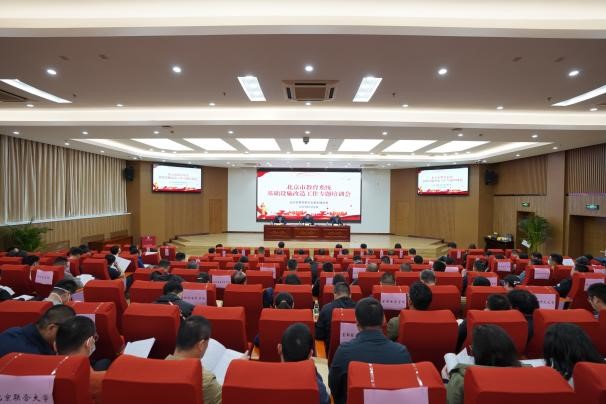
Wu Huaihai, second-level inspector of Beijing Municipal Education Commission, Yao Linxiu, Standing Committee of the Party Committee and Vice President of CUEB attended the opening ceremony. Leng Chuancai, Director of Beijing Municipal Education Commission Foundation Division presided over the opening ceremony.
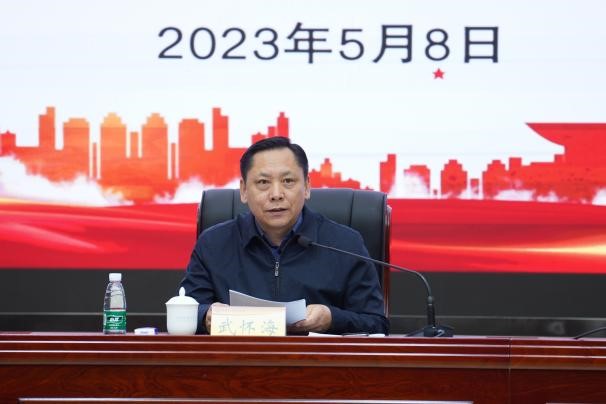
Wu Huaihai made a speech at the opening ceremony and put forward four requirements. Firstly, we must elevate our political consciousness and undertake campus planning, thereby promoting the development of education in Beijing. Guided by the instruction on Beijing's educational endeavors proposed by General Secretary Xi Jinping, we must fully implement the spirit of the 20th National Congress of the Communist Party of China. Through in-depth themed education, we shall elevate our ideological consciousness, strengthen our sense of responsibility, and execute campus planning, thereby making solid progress towards the objectives outlined for the 14th Five-Year Plan. Secondly, we must fully recognize the role of infrastructure and financial work in the development of the schools. It is essential to the coordination of educational reform and development of various infrastructure projects, manage and utilize school construction investments, strengthen infrastructure and financial management, and prioritize school infrastructure and financial work. Particularly, we need to enhance the management of infrastructure renovation. Thirdly, we need to strengthen our administration and seek efficiency, quality, and development from advanced management practices. In terms of budget execution, we should plan our budgets in a more reasonable manner for a better use of the fund. Besides, we must make every effort to ensure the smooth organization and safety of each project. Fourthly, we must prioritize learning and institutional development to establish a solid firewall for Party conduct and anti-corruption construction. Strengthening our learning endeavors requires a commitment to simultaneous learning and working, while perfecting our institutional framework necessitates a focus on precision and meticulousness, strict oversight, enhanced integrity and self-discipline. That also means we must establish a solid bottom line in rejecting corruption and preventing deviations from established norms.
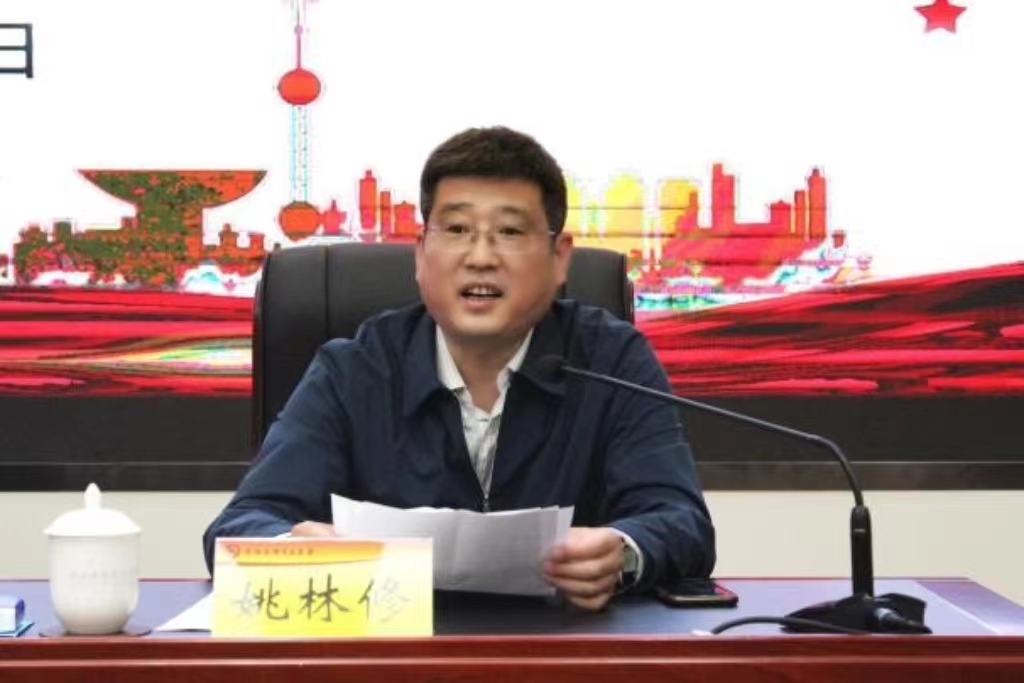
Yao delivered a welcoming address. He extended welcome at first to leaders and experts from BMEC, Beijing Finance Bureau (BFB) and other universities and wished this meeting a great success. He noted that, under the strong leadership of Beijing Municipal Committee of the CPC (BMC) and Beijing government and the support of BMEC and Beijing Municipal Education Working Committee (BMEWC), CUEB played a full part to implement the “three adherences”.
- First, adhere to studying and implementing Xi Jinping Thought on Socialism with Chinese Characteristics for a New Era to deepen curriculum-based ideological and political construction and build a high-quality professional training system.
- Second, adhere to studying and acting on the spirit of General Secretary Xi Jinping’s important speeches to Beijing, keeping in mind our role of “being based on Beijing and serving the capital” and providing intellectual support for the construction of four centers (namely, national political center, cultural center, center for international exchanges, and center for scientific discovery and technological innovation), further improving the ability to serve the nation and Beijing in the new era.
- Third, adhere to addressing the most pressing difficulties of high concern to staffs and students, systemizing the long-term effective mechanism in providing service and care for the general public and implement diversified measures to jointly motivate CUEB’s development, thus enhancing the sense of gain and happiness among staffs and students.
Since the beginning of the 13th Five-Year Plan, CUEB has built two new buildings and completed nearly 400 infrastructure renovation projects. Therefore, hardware facilities and infrastructure transformation management have been greatly improved. CUEB shall identify itself as a high-level research university and strengthen its infrastructure construction capacity to better serve the capital in the new era.
The meeting consisted of three parts, including targeted training, experience sharing and work arranging.
During the first part, Jiang Zhu, from Government Performance Management Research Institute of Beijing Technology and Business University, Zhang Jun, from Beijing Public Resources Trading Center, and Dang Xueyi, from Government Procurement Office of BFB shared detailed explanations respectively on how to do a better job in finance pre-performance evaluation, bidding management methods and procurement laws and regulations of the Beijing municipal government.
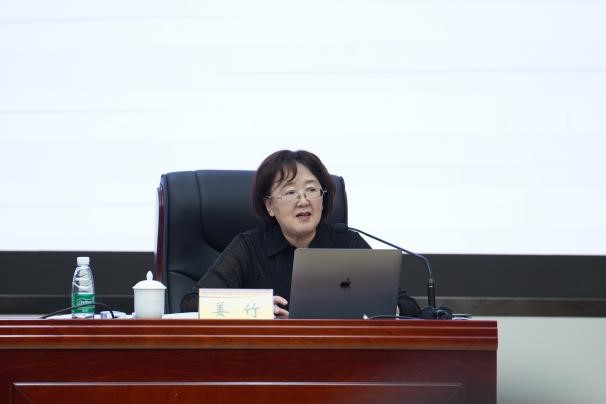
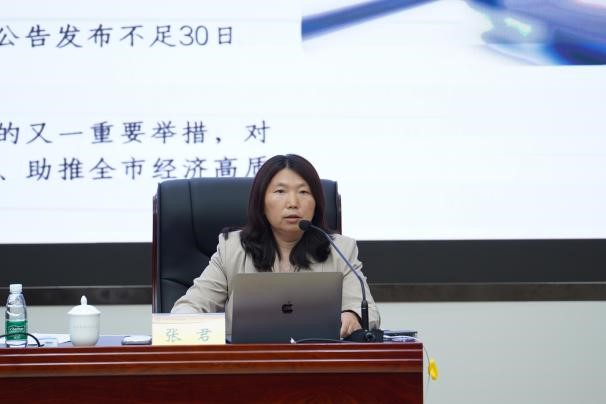
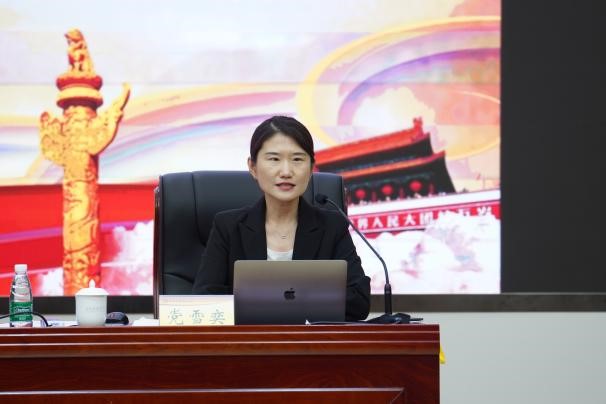
The other two parts were presided over by Wang Hong, Deputy Director of the Infrastructure Construction Department of BMEC. Zhang Li, Director of Division of Financial Administration of Beijing Information Science and Technology University, and Li Hua, Director of Office of Logistics Services of CUEB shared their experience on budget management and infrastructure renovation respectively. Liu Tao, from the Education Business Division of Beijing Finance Bureau, Li Gaoyuan, Deputy Director of Finance Division of Beijing Municipal Education Commission, and Leng Chuancai, Director of the Infrastructure Division of Beijing Municipal Education Commission, respectively organized the work related to budget management, performance management, and infrastructure transformation management.
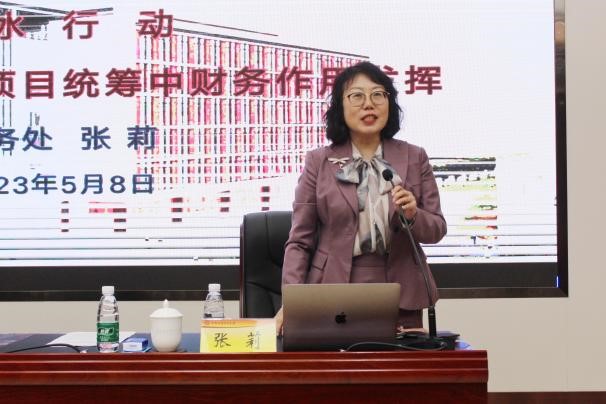
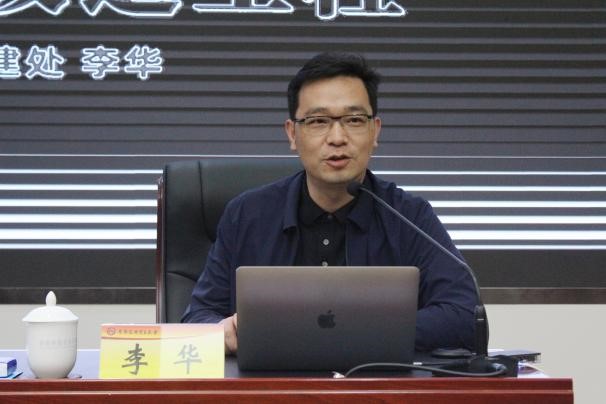
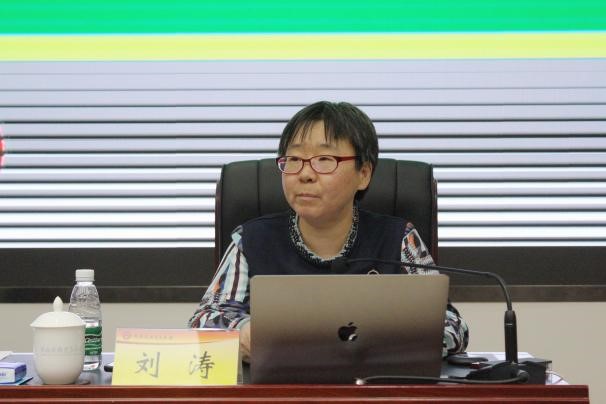
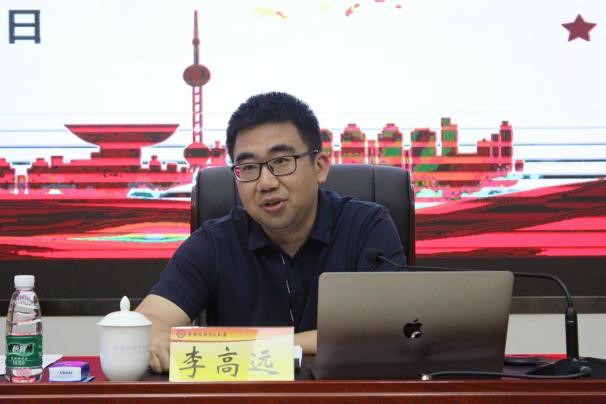
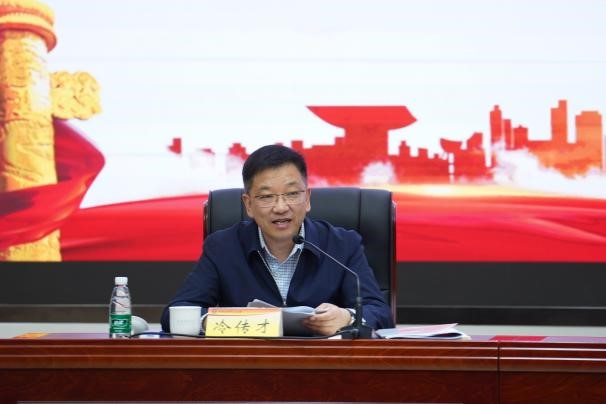
Attaching great importance to this meeting, Yao made a comprehensive arrangement, and many departments, including Party Committee Publicity Department, Party Committee Security Department, Financial Administration, Property Management Department and Office of Logistics Services worked together to bring forth this successful meeting, which received high recognition from the BMEC and leaders from other universities.
